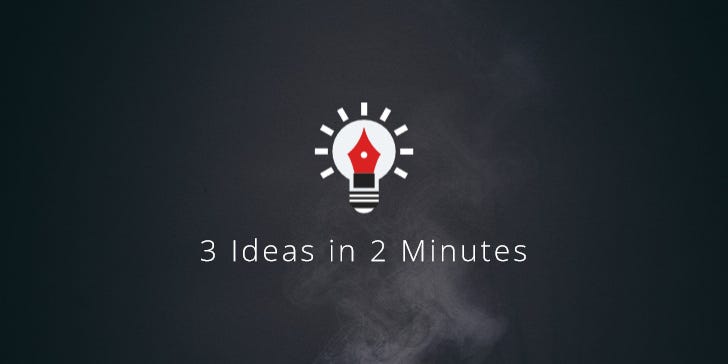#164: Collaborative Dismissiveness, Milgram Questions & Manufacturing Consent
3 Ideas in 2 Minutes on Manipulation Tactics
I. Collaborative Dismissiveness
Collaborative Dismissiveness (aka Evidence Treadmill) is my term for a manipulation tactic used in dishonest complaint handling. It comes in roughly two stages.
First, the organisation feigns friendly openness to your complaint, inviting you to share your concerns freely. However, they keep dismissing them out of hand with either bogus or no explanations.
This is followed by generic encouragement to ask any questions. Their answers only create more nonsense for you to refute. But no matter how well you argue or how much evidence you provide, you’re getting nowhere. Hope this helps.
Now comes your opportunity to request a review of their decision — to which you must provide new evidence. Of course, any new evidence you provide is also looked at with confirmation bias and dismissed on shaky grounds. But please do get in touch if you have further questions.
If you haven’t lost your temper or given up by now and still have arguments they haven’t dismissed yet, it’s time for stage two. The organisation sends a strongly-worded letter suggesting you’re being unreasonable. That being said, please let them know if there’s anything else I can do for you.
The goal of Collaborative Dismissiveness is to undermine your complaint without appearing uncooperative. It’s worth noting, though, that sometimes the other party may have a point.
II. Milgram Questions
In 1961, social psychologist Stanley Milgram conducted an infamous experiment. He aimed to investigate the willingness of participants to obey an authority figure who instructed them to perform acts that conflicted with their conscience. With that experiment in mind, writer J. Sanilac coined the term Milgram Questions:
A milgram question is a question where the penalty for an “unacceptable” answer is greater than the reward for a true answer, on account of which no acceptable answer can be trusted.
Sanilac gives the example of asking “Do you love Big Brother?” (in reference to George Orwell’s dystopian novel 1984). Say no and you will be punished. Say yes and you have submitted yourself to the interlocutor’s power. The point isn’t to get a true answer. The point is to see if you obey. It’s reminiscent of Havel’s Greengrocer, which former Czech dissident Vaclav Havel described in his essay The Power of the Powerless.
III. Manufacturing Consent
Manufacturing Consent is a concept developed by famed linguist Noam Chomsky. It refers to how mass media shapes public opinion and maintains the status quo. According to Chomsky, the media acts as a propaganda system that filters and frames information in a manner that aligns with the interests of dominant elites, such as corporations and the government.
This is done through selective reporting, emphasis and omission of certain topics. The media constructs a narrative that legitimises the actions of those in power while marginalizing dissenting voices and alternative viewpoints. The goal of manufactured consent is to reinforce existing power structures and prevent meaningful challenges to them. 🐘
Have a great week,
Chris
themindcollection.com


